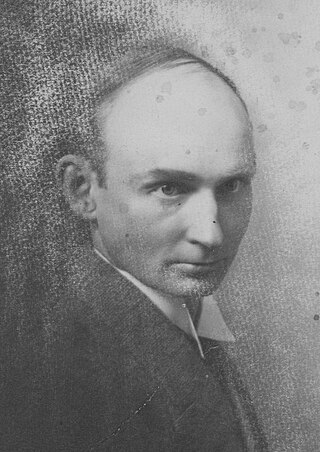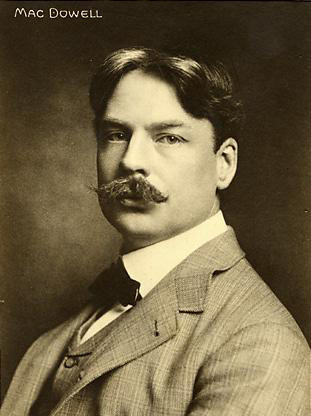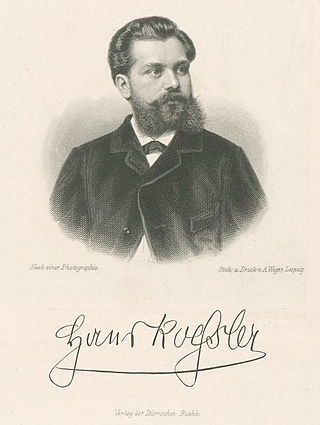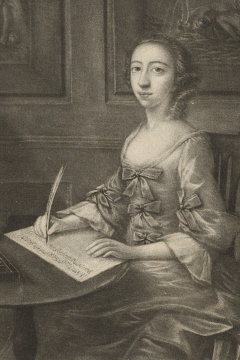Related Research Articles

Carl Ruggles was an American composer, painter and teacher. His pieces employed "dissonant counterpoint", a term coined by fellow composer and musicologist Charles Seeger to describe Ruggles' music. His method of atonal counterpoint was based on a non-serial technique of avoiding repeating a pitch class until a generally fixed number of eight pitch classes intervened. He is considered a founder of the ultramodernist movement of American composers that included Henry Cowell and Ruth Crawford Seeger, among others. He had no formal musical education, yet was an extreme perfectionist—writing music at a painstakingly slow rate and leaving behind a very small output.

Walter Hamor Piston, Jr., was an American composer of classical music, music theorist, and professor of music at Harvard University.

Douglas Stuart Moore was an American composer, songwriter, organist, pianist, conductor, educator, actor, and author. A composer who mainly wrote works with an American subject, his music is generally characterized by lyricism in a popular or conservative style which generally eschewed the more experimental progressive trends of musical modernism. Composer Virgil Thomson described Moore as a neoromantic composer who was influenced by American folk music. While several of his works enjoyed popularity during his lifetime, only his folk opera The Ballad of Baby Doe (1956) has remained well known into the 21st century.

Edward Alexander MacDowell was an American composer and pianist of the late Romantic period. He was best known for his second piano concerto and his piano suites Woodland Sketches, Sea Pieces and New England Idylls. Woodland Sketches includes his most popular short piece, "To a Wild Rose". In 1904 he was one of the first seven Americans honored by membership in the American Academy of Arts and Letters.
Louise Juliette Talma was an American composer, academic, and pianist. After studies in New York and in France, piano with Isidor Philipp and composition with Nadia Boulanger, she focused on composition from 1935. She taught at the American Conservatory in Fontainebleau, and at Hunter College. Her opera The Alcestiad was the first full-scale opera by an American woman staged in Europe. She was the first woman in the National Institute of Arts and Letters and the first woman awarded the Sibelius Medal for Composition.
Samuel Hans Adler is an American composer, conductor, author, and professor. During the course of a professional career which ranges over six decades he has served as a faculty member at both the University of Rochester's Eastman School of Music and the Juilliard School. In addition, he is credited with founding and conducting the Seventh Army Symphony Orchestra which participated in the cultural diplomacy initiatives of the United States in Germany and throughout Europe in the aftermath of World War II. Adler's musical catalogue includes over 400 published compositions. He has been honored with several awards including Germany's Order of Merit – Officer's Cross.
Melinda Jane Wagner is a US composer, and winner of the 1999 Pulitzer Prize in music. Her undergraduate degree is from Hamilton College. She received her graduates degrees from University of Chicago and University of Pennsylvania. She also served as Composer-in-Residence at the University of Texas (Austin) and at the 'Bravo!' Vail Valley Music Festival. Some of her teachers included Richard Wernick, George Crumb, Shulamit Ran, and Jay Reise.

William Quincy Porter was an American composer and teacher of classical music.

Barbara Kolb was an American composer and educator, the first woman to win the Rome Prize in musical composition. Her music features sound masses of colorful textures, impressionistic sounds and atonal vocabulary, with influences from literary and visual arts. She taught at the Third Street Music School Settlement, Rhode Island College and Eastman School of Music.

Hans von Koessler was a German composer, conductor and music teacher. In Hungary, where he worked for 26 years, he was known as János Koessler.

Elisabetta de Gambarini was an English composer, singer, organist, harpsichordist, pianist, orchestral conductor and painter of the 18th century. Elisabetta's music is considered late Baroque and Classical music. She achieved distinction as an all-around musician, performing on, and composing for a variety of instruments as well as voice. Her compositions were known to reflect that of vocal work instead of instrumental patterns. She was the first female composer in Britain to publish a collection of keyboard music. Some sources describe her voice type as a singer as a soprano, and others as a mezzo-soprano.
Douglas Allanbrook was an American composer, concert pianist and harpsichordist. He was associated with a group of mid-twentieth century Boston composers who were students of Nadia Boulanger. His compositions are described by the Kennedy Center as "smooth, showing astute sense, assertiveness, and originality."
Margaret Brouwer is an American composer and composition teacher. She founded the Blue Streak Ensemble chamber music group.
Tommaso Giordani was an Italian composer active in England and particularly in Ireland.
Arthur Eckersley Butterworth, was an English composer, conductor, trumpeter and teacher.

Ruth Zechlin was a German composer.
Friedrich Zehm was a German classical composer.
Irene Britton Smith was an American classical composer and educator.
Patsy Rogers is an American composer and teacher who has won several awards and commissions. She is active in the International Alliance for Women in Music (IAWM).
References
- 1 2 3 4 5 "Obituary for Marilyn J. Ziffrin at Chadwick Funeral and Cremation Service". www.meaningfulfunerals.net. Retrieved May 19, 2018.
- 1 2 3 4 5 6 7 8 9 10 11 12 13 14 Schantz, Malinda (Spring 1998). "Marilyn J. Ziffrin: A Lifetime of Creating Music" (PDF). Sonneck Society for American Music. Retrieved September 27, 2010.
- 1 2 "Marilyn J. Ziffrin Interview with Bruce Duffie . . . . . . . . ". www.bruceduffie.com. Retrieved October 29, 2024.
- ↑ Sadie, Julie Anne; Samuel, Rhian (1994). The Norton/Grove dictionary of women composers. W. W. Norton & Company. ISBN 9780393034875 . Retrieved October 4, 2010.
- ↑ Ziffrin, Marilyn J. (1994). Carl Ruggles : composer, painter, and storyteller. University of Illinois Press. ISBN 0-252-02042-1. OCLC 868950787.
- ↑ Organ and Harpsichord Music by Women Composers